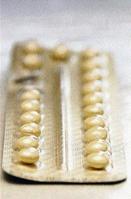Heather Little-White, Ph.D.Contributor
Birth control pills. - Ricardo Makyn/Staff Photographer
There is common saying that if you fail to plan you plan to fail. In the same way, if you engage in unprotected sex, you can expectto get pregnant. However, there are those who fail to plan for birth control because they know they can use the morning-after pill, which prevents women from becoming pregnant after engaging in unprotected vaginal intercourse or when contraceptive fails. The pill slows the speed of the egg travelling through the Fallopian tube and it also changes the lining of the uterus so that the egg finds it difficult to become attached to the uteral wall.
The pill is a concentrated dose of the same drugs found in typical birth control pills. Some morning-after pills contain only one hormone, progestin (Plan B) and others contain two, progestin and estrogen. Progestin prevents the sperm from reaching the egg and prevents the fertilised egg from implanting itself to wall of the uterus (implantation). Estrogen stops the ovaries from releasing eggs (ovulation) to be fertilised by sperm.
Timing
To be effective, the pill has to be taken within 72 hours of having unprotected vaginal intercourse, since human conception rarely occurs immediately after intercourse. A second dose should be taken 12 hours later. If your partner's condom broke around 4.00 a.m. on Saturday, the pill must be taken within 72 hours from the time the condom broke. The earlier the pill is taken, the more effective it is in preventing pregnancy.
Statistically, it has been shown that a woman can lower her risk of pregnancy by 75 to 80 per cent after a single act of unprotected sex. However, if the woman is already pregnant, the morning-after pill has no guarantee in terminating the pregnancy and it could put mother and baby at risk.
The morning-after pill is easy to purchase without prescription and may be purchased by females 18 years and older and who must furnish proof of age. The Food and Dug Administration (FDA) in the United States took the decision to reduce the restriction on the sale of the pill with a view to reducing by half the nation's annual unplanned pregnancies. In Jamaica, the pill was removed from the prescribed drug list in May andis sold over the counter. However, opponents believe that easy access to the pill would increase promiscuity among young people.
Young girls
According to The Jamica-Gleaner.com, there is the concern among local pharmacists that the morning-after pill, Postinor 2, is being abused. There is in increase in use, especially among schoolchildren who purchase it as they would purchase 'sweets'. The recommended usage of the morning-after pill is no more than two times per month but some young people are taking the pill up to five times per month. This frequency will lead to side effects like internal bleeding. It is feared that older men who have sexual intercourse with minor girls could force them to use the pills to prevent them for getting pregnant.
Another concern of local pharmacists is that there may be a casual linkage between the increased use of Postinor 2 and the declining sales of condoms, especially against the background of increases in HIV/AIDS cases in the region. The morning-after pill is designed to prevent pregnancy while condoms prevent pregnancy in addition to offering protection against sexually transmitted diseases, including AIDS.
Chemical abortion
The emergency contraceptive works in one of three ways - it may inhibit ovulation (no egg is released); it ma the normal menstrual cycle delaying ovulation, or it may irritate the lining of the uterus so that if the first and second actions fail and the woman becomes pregnant, the human being created will die before he or she can actually attach to the lining of the uterus. The woman's body rejects the living embryo and the child dies. This third action is referred to as chemical abortion.
How safe is the morning-after pill? Taking the morning-after pill is an unpleasant experience. High doses of birth control medication should not be taken without consulting your doctor. Some of the side effects include nausea, described by some as being similar to having bad stomach flu. It is advised that an anti-nausea drug be taken before taking the pills.
Other side effects are vomiting, diarrhoea, headache, tenderness of the breasts, changes in menstrual cycle, ectopic pregnancy, blood clot formation and infertility. Women who become pregnant after taking the morning-after pill is at risk of harming the foetus, and doctors usually recommend a therapeutic abortion.
Storing morning-after pills is not recommended as the product is manufactured for emergency contraception, to be used within 72 hours after engaging in unprotected vaginal sex or birth control device failure for maximum effectiveness.

